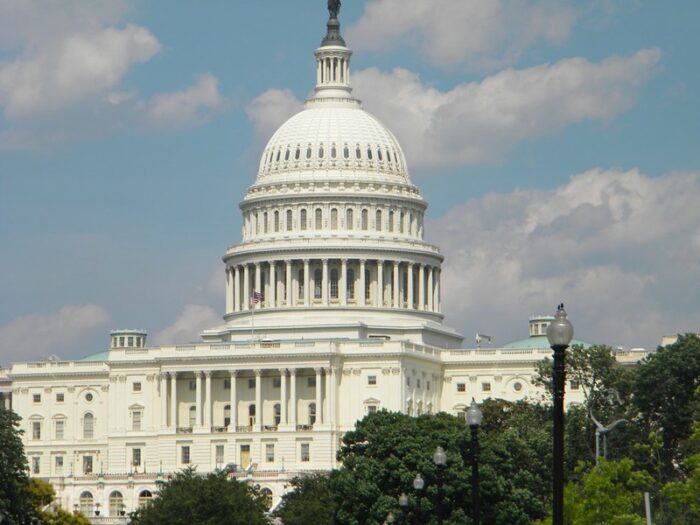“US Capitol Building” by ttarasiuk is licensed under CC BY 2.0.
On Wednesday, May 15, the U.S. House of Representatives passed the TICKET as the culmination of a hard-fought battle against live entertainment monopolies and a decisive victory for concertgoers across the country. The landmark bill endeavors to increase pricing transparency and consumer protections, cracking down on exploitative fees and after-market price-hiking through increased accountability for the major ticketing companies. The bill was approved in an expected landslide of 388-24, with all dissenting votes arriving from Republican Representatives and 18 abstaining; details on the vote are accessible via the House Clerk site.
Among those mandates of the TICKET–or Transparency In Charges for Key Events Ticketing–act are all-in pricing and a requirement that secondary sellers disclose their status as such, forgoing any pretense to association with artists, promoters or venues. Possibly the most exciting new regulation is that primary ticket sellers must guarantee refunds for canceled events or issue replacements in applicable cases, and secondary sellers must clearly express a refund policy at the time of purchase.
Though this is far from the end of the road–as the Senate must, in turn, pass a bill of its own before it can advance to the president’s desk–the bold new bill’s race through the House with flying colors grants some indication of a potential cruise through the upper chamber to ratification. Though the Senate’s bill has not yet been slated for a floor vote, it has already received extensive sponsorship from Senators on both sides of the aisle, a true rarity in today’s political climate and a testament to the pertinence of the reforms.
A strong message from within the outpouring of support came from Stephen Parker, President of the National Independent Venue Association, who hailed the bill just as he called for further action. “Not only has the U.S. House of Representatives moved to protect consumers from predatory and deceptive ticketing practices, but states across the country, including Arizona, Maryland, Minnesota and Nevada, have recently banned, without exception, speculative tickets on a bipartisan basis,” Parker stated. “We call on Congress to do the same, to build on the TICKET Act and adopt strong, enforceable, comprehensive ticketing reform legislation like the Fans First Act.” Recently introduced in the Senate, the Fans First Act outreaches the TICKET Act with increased protections and more strict enforcement.
Live Nation also issued a statement on the bill’s passage, offering, “We’ve led the industry by adopting all-in pricing and support a national law to ensure everyone follows this policy that benefits fans and artists. We also back other ticketing reforms like enhancing anti-bot legislation and banning speculative ticketing and other predatory resale practices. Bipartisan support for these reforms show that protecting fans and artists is in everyone’s interest. We look forward to working with policymakers to make these changes law.”
Despite the continued efforts ahead, this week’s victory is a definite cause for celebration. Here’s hoping for a final farewell to predatory ticketing practices in the near future.



No Comments comments associated with this post